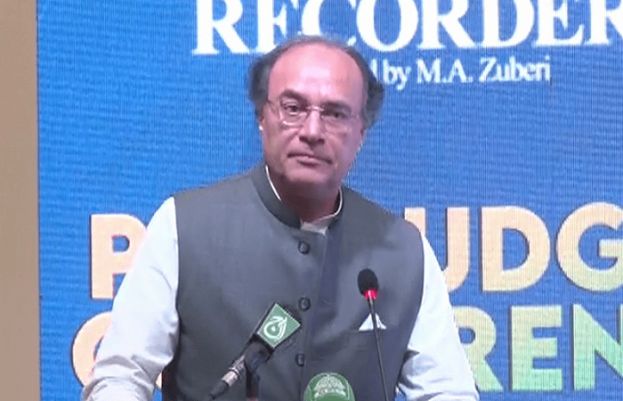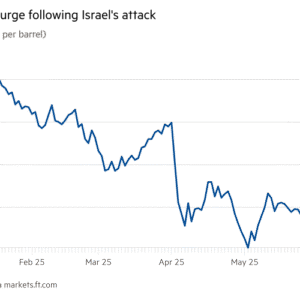
As Pakistan gears up for its upcoming bailout talks with the International Monetary Fund (IMF), Finance Minister Muhammad Aurangzeb Sunday underscored the significance of privatisation terming it as necessary to achieve economic stability.
“You have to move towards privatisation if you want economic stability in the country,” Aurangzeb said while speaking at the Pre-Budget Conference 2024-25 in Lahore.
His remarks come as Prime Minister Shehbaz Sharif-led government has made a push for privatisation of several state-owned enterprises (SOEs) in a bid to address the burden on the exchequer and tackle the prevailing financial crunch driven by various dire economic circumstances.
Stressing that the private sector has been brought on board with the government, the finance czar underscored improved economic indicators including the reduced current account deficit (CAD) of less than $1 billion and a decrease in inflation coupled with “all-time high” stock exchange levels.
Revealing that around Rs8 to 10 trillion cash is currently in circulation in Pakistan, the finance minister underscored the need to work on issues pertaining to tax and gross domestic product (GDP) and called on businessmen to come into the tax net by themselves if they haven’t done so already.
Reassuring that the government will provide all kinds of facilities, the minister reiterated that the authorities will not back down from their stance on the issue of broadening of tax net.
“People think that if they come in the tax net, they will be harassed for no reason [however, that’s not the case as] we will provide facilities, negotiate but will not go back from the track,” he said.
It is pertinent to know that the federal government, in its bid to curb tax evasion, has already ordered the blocking of SIMs of non-filers who do not appear on the active taxpayer list but are liable to file the Income Tax Return for Tax Year 2023.
Lamenting the failure of the track and trace system and its non-implementation, Aurangzeb doubled down on the issue of uniform energy tariff for the industries terming it as a “just” demand.
“The industries cannot function at 25 to 26% interest rate,” he noted.
Stressing the need for the elimination of electricity theft, the minister said that the government is making necessary changes in the boards of the distribution companies (Discos) and that the private sector will be taken on board in this regard.
Related Posts

Amazon boss says AI will mean fewer ‘corporate’ jobs
Artificial intelligence myFT Digest — delivered directly to your inbox.
Read more
Oil prices surge after Israel’s attack on Iran
Oil myFT Digest — delivered directly to your inbox.
Read more

